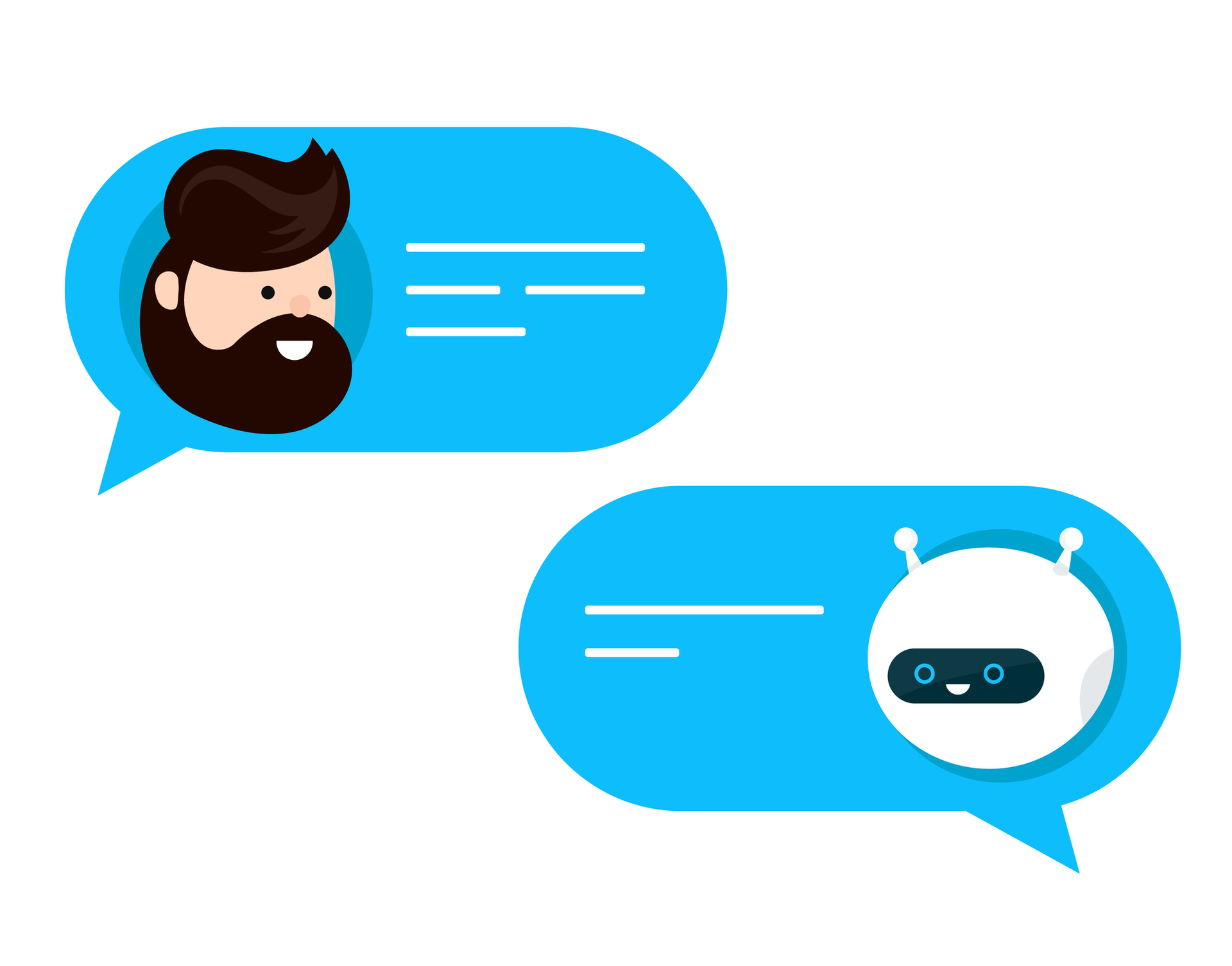As AI continues to master language, and form more complex relationships that mimic the spark of human connection, there is a practical application: digital advertising with AI chatbots, that can suggest products during the “conversation”. People love chatting in real time, and want that relationship reflected in their relationships with brands. Essentially, consumers want to be able to connect with brands, but in a way that is genuine and reflects their interactions with humans.
Last week, DMN spoke to Ryan Begley, cofounder of EyeLevel.ai, a San Francisco-based startup that just secured $2 million in seed funding. After working at IBM Watson as a product director on digital assistants in vehicles, Begley combined his knowledge with friends of his who were working on chat applications with The Weather Company. They found that people loved interacting with the chat application: they would upload pictures of their families, tell the chat application to have a nice day, and ask questions. This discovery helped Begley and his associates realize that there was a need for consumers to communicate in real time to the companies that were providing services. After some deliberation, the trio decided that they had an incredible business opportunity to help brands reach out to consumers and build relationships with them with no middle man. They quit their jobs, were accepted into an accelerator, and spent the next six months building what is now Eyelevel.ai, whose core function is to take creative and copy from businesses and publish them across a network of digital assistants and chat applications.
“We as consumers, all of us… are aware that digital advertising is broken, it’s annoying, the incentives are misaligned,” Begley said during a phone interview with DMN. “I was working with consumer electronic companies on IoT projects on big appliance manufacturers. A common theme that would come out of working with these companies was that Whirlpool for instance has been in business for 100 years has never once in 100 years had the ability to interact with their customer directly.” In the past, there may not have been a way for consumers to talk directly to brands (other than filling out a warranty form) but that is rapidly changing in the digital age, so much so that brands stand to hemorrhage customers if they stick to their traditional methods without upgrading.
“Data is becoming so prevalent and consumer activity is ubiquitous, there’s an opportunity for all these different companies to form relationships with their customers directly as opposed to relying on traditional channels to market to advertise, to cross-sell and upsell and so forth.”
One of the companies benefiting from Eyelevel’s digital infrastructure is Assaf Elovic, co-founder and CTO of Tiv.ai, a digital assistant that works directly with Facebook messenger. Its user interface is relatively simple: you sign in with Facebook messenger and tell the bot whatever you want it to remind you to do, i.e. buy shoes. You set the timer for when you wish to be reminded, and just like that, a reminder from Facebook pops up at the designated time. Tiv.ai was able to get three million users in a little over a year organically, with no clever marketing strategy. With so much growth so quickly, Elovic needed away to monetize, and was temporarily stumped.
“The problem with chatbots is that unlike websites or mobile apps where you can just put ads – a banner ad, or just a hyperlink, or some referral program. That’s how you usually promote ads. But with chatbots, that wasn’t the case.” Elovic needed a nimble program to solve his complex problem, and he found that Eyelevel was able to understand his needs and deliver.
“By applying Eyelevel to our products, we are now able to monetize based on contact with users, which is something we couldn’t have done ourselves,” said Assaf during an interview. Stuck with the inflexible methods of traditional advertising, Elovic had no way to insert advertisements in his product, let alone something as niche as a reminder bot. But with Eyelevel, which relies on contextual cues from the consumer, Tiv.ai is now able to integrate a monetization platform seamlessly in an already thriving digital assistant business.
Conversational advertising seems to have found a natural partner in AI. As long as the right data is being used, customers can have their increasingly high expectations met by not only connecting to brands, but brands can also use targeted and specific advertisements during chats to advertise, like a real person taking social cues. These advertisements seem more like suggestions from a friend who knows you well, as opposed to a motor-mouthed salesman hawking toasters.








